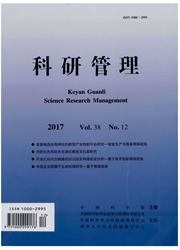

 中文摘要:
中文摘要:
本文以"先境外上市、后回归A股"这一独特的交叉上市路径为动态研究视角,通过逐步构造三个扩展的现金-现金流敏感性模型,研究上市公司从发达市场回归新兴市场所存在的融资约束缓解效应。基于H股和A股两个市场的配对数据发现:公司从H股回归A股后,无论是较仅在H股上市的公司、还是较自身回归以前,其现金-现金流敏感性都有所降低;但是与仅在A股上市的公司相比,其现金-现金流敏感性偏高。在考虑模型构建与样本配对等问题后,依然得到一致的结果。我们认为,回归A股在一定程度上缓解了企业融资约束,这不仅为中国公司在境外上市背景下的财务政策选择以及"沪港通"背景下内地市场的制度建设提供了有益的借鉴,也为进一步检验交叉上市路径下的融资约束假说提供了有力的证据。
 英文摘要:
英文摘要:
From the dynamic perspective of cross-listing( listing abroad first and then returning to A-share market),this study investigates how effectively a company listed in a developed market will alleviate its financing constraints by returning to an emerging market.Based on the paired data of both H-share market and A-share market,the results show that companies that return to A-share market are less sensitive to cash-cash flow than both the companies listed only in H-share market and themselves before returning A-share market,but more sensitive than those listed only in A-share market. And the result remains the same after such factors as model building and sample matching are taken into consideration. This study concludes that returning to A-share market will ease corporate financing constraints to a certain extent. This conclusion not only provides beneficial reference for Chinese companies' financial policy choice under the overseas listing background and the system construction of the mainland market under the background of the "Shanghai-Hong Kong Stock Connect"program,but also provides strong evidence for further verification of the financing constraint hypothesis in the path of cross-listing.
 同期刊论文项目
同期刊论文项目
 同项目期刊论文
同项目期刊论文
 Financial relationships, banking structure and financing constraints: evidence from private enterpri
Financial relationships, banking structure and financing constraints: evidence from private enterpri 期刊信息
期刊信息
